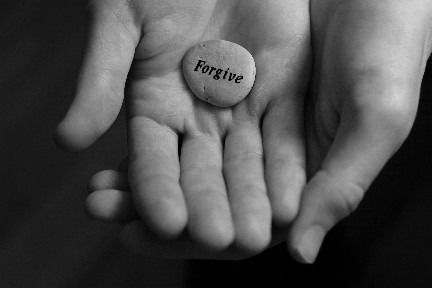
We have all been angry at some point in our life because of someone who has wronged us or hurt us. Anger is a completely normal, usually healthy, human emotion. But holding on to that anger can lead to problems at work, in your personal relationships, and in the overall quality of your life. Forgiveness, like so many things in life, is easier said than done.
Forgiveness can be a challenge for several reasons. Sometimes forgiveness can be confused with condoning what someone has done to us. Forgiveness can be difficult when the person who wronged us doesn’t seem to deserve our forgiveness -it’s hard to remember that forgiveness benefits the forgiver more than the one who is forgiven. Ultimately, forgiveness is especially challenging because it’s hard to let go of what’s happened.
What is forgiveness?
To understand what forgiveness is, it is important to consider what forgiveness is not. The act of forgiveness does not suggest you have forgotten the injustice. Nor does it imply you condone or excuse the wrongdoer.
When you forgive someone who has deeply hurt you, you let go of resentment and the urge to seek revenge, no matter how deserving of these things the wrongdoer may be. You give the great gifts of acceptance, generosity and love. Though the wrongdoer does not deserve these gifts, you don’t let that stand in your way. You give, not out of pity, not out of grim obligation. Rather, you give because you have chosen to have a merciful heart. A heart with the power to free yourself so you can live a better life.
Forgiveness is a paradox -something that may sound illogical but still works. It is the foregoing of resentment or revenge when the wrongdoer’s actions deserve it. It is giving the gifts of mercy, generosity and love when the wrongdoer’s actions indicate that he/she does not deserve them. As we give the gift of forgiveness, we ourselves are healed.
Science
Studies show that people who were generally more neurotic, angry and hostile in life were less likely to forgive another person even after a long time had passed. People who forgive are happier and healthier than those who hold resentments. The first study to look at how forgiveness improves physical health discovered that when people think about forgiving an offender it leads to improved functioning in their cardiovascular and nervous systems. Another study at the University of Wisconsin found the more forgiving people were, the less they suffered from a wide range of illnesses. The less forgiving people reported a greater number of health problems.
Religion
Judaism: The most beautiful thing a man can do is to forgive wrong.
Christianity: Then Peter came up and said to him, “Lord, how often shall my brother sin against me, and I forgive him? As many as seven times?” Jesus said to him, “I do not say to you seven times seven, but seventy times seven.”
Islam: Forgive thy servant seventy times a day.
Sikhism: Where there is forgiveness there is God himself.
Taoism: Recompense injury with kindness
Buddhism: Never is hate diminished by hatred: It is only diminished by love.
Anger can be a catalyst for positive action and personal change, but holding on to anger is such a waste of time and energy. Don’t get me wrong, I still get angry, forgiveness is a process and I’m not quite there yet. But I’m doing my best to turn that anger into something positive. I refuse to let anger govern my life. I chose to forgive.

aaaah, this one is for me. I find it so hard to forgive, or forget…
lol…yes Mirtha! we’ve got to meet at some point…lol..
Forgiving someone that you feel has wronged you is very hard, but you have to remember that you can’t move toward self healing without this important strip in the process. Anger holds you in place and hinders emotional growth. When you forgive, you are helping yourself.
Oh, and I didn’t say anything about forgetting 😉